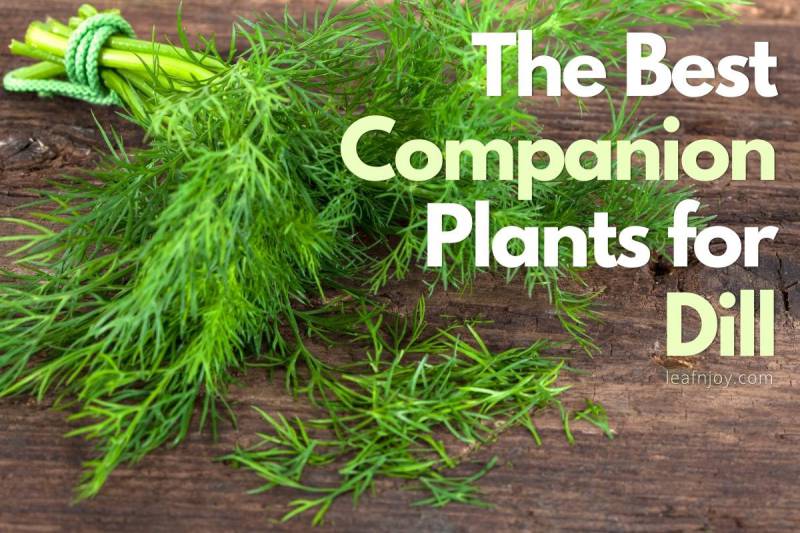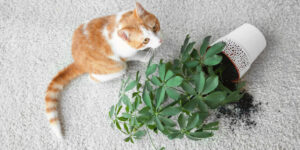
Dill Companion Plants
Introduction to Dill Companion Plants
Companion planting is a gardening technique that involves growing different plants in close proximity for mutual benefits. This practice can enhance growth, deter pests, and improve overall garden health. Dill (Anethum graveolens), a popular culinary herb, is known for its aromatic leaves and seeds, which are widely used in cooking and pickling. Understanding which plants make good companions for dill can maximize its potential in your garden.
Benefits of Companion Planting with Dill
Dill offers several advantages when planted alongside certain crops:
- Pest Control: Dill attracts beneficial insects like ladybugs and lacewings, which prey on common garden pests such as aphids and cabbage moths.
- Pollinator Attraction: The flowers of dill are particularly attractive to pollinators, enhancing the productivity of nearby plants.
- Space Optimization: Interplanting dill with other crops can make efficient use of garden space.
Ideal Companion Plants for Dill
Dill can thrive alongside various plants, enhancing their growth while providing mutual benefits. Here are some recommended companions:
- Asparagus: Dill can help repel pests that threaten asparagus.
- Cucumbers: The combination of dill and cucumbers is beneficial as they share similar growing conditions.
- Onions: Onions can deter aphids, which makes them a great companion for dill.
- Lettuce: Dill’s growth does not interfere with lettuce, and both can benefit from the same watering schedule.
- Brassicas (Cabbage Family): Dill repels pests that commonly affect cabbage, broccoli, and kale.
Table of Dill Companion Plants
| Companion Plant | Benefits |
|---|---|
| Asparagus | Repels pests |
| Cucumbers | Shares similar growth conditions |
| Onions | Deters aphids |
| Lettuce | Compatible watering needs |
| Brassicas | Repels common pests |
Combinations to Avoid
While dill is a great companion for many plants, there are specific combinations to avoid:
- Carrots: Dill and carrots belong to the same family (Apiaceae) and can cross-pollinate, leading to stunted growth.
- Tomatoes: Young dill can benefit tomatoes by attracting pollinators; however, mature dill may stunt their growth. It is advisable to prune dill regularly or relocate it before it flowers.
- Fennel: Like carrots, fennel is another member of the Apiaceae family that should not be planted near dill due to potential cross-pollination.
Growing Conditions for Dill
Dill prefers well-drained soil with a pH between 5.5 and 6.5. It thrives in full sunlight but can tolerate partial shade. Regular watering is essential; however, overwatering should be avoided as it can lead to root rot.
Tips for Growing Dill
- Soil Preparation: Amend soil with organic matter to improve drainage and nutrient content.
- Planting Time: Sow seeds in early spring or fall; dill grows best in cooler temperatures.
- Spacing: Space plants about 12 inches apart to allow for adequate airflow.
Common Pests and Diseases Affecting Dill
Dill is relatively pest-resistant but can occasionally attract aphids and powdery mildew. Regular monitoring and the use of companion plants can help mitigate these issues.
Pest Management Strategies
- Natural Predators: Encourage beneficial insects by planting flowers nearby.
- Handpicking: For larger pests like caterpillars, handpicking can be effective.
- Neem Oil Spray: This organic pesticide can help control aphid populations.
Frequently Asked Questions (FAQ)
What are the best companion plants for dill?
The best companions include asparagus, cucumbers, onions, lettuce, and members of the brassica family like cabbage and broccoli.
Can I plant dill next to tomatoes?
Yes, but only when the dill is young. Once it matures and begins to flower, it may stunt tomato growth.
Why should I avoid planting dill with carrots?
Dill and carrots belong to the same plant family and may cross-pollinate, resulting in stunted growth.
How much sunlight does dill need?
Dill thrives in full sunlight but can tolerate partial shade.
What soil conditions are ideal for growing dill?
Dill prefers well-drained soil with a pH between 5.5 and 6.5.
Conclusion
Companion planting with dill not only enhances its growth but also benefits surrounding crops by deterring pests and attracting pollinators. By carefully selecting companion plants and avoiding detrimental pairings, gardeners can create a thriving ecosystem in their gardens.For more detailed information on growing herbs like dill, you may refer to resources from reputable gardening sites such as Gardening Know How or relevant agricultural extensions from government websites.


